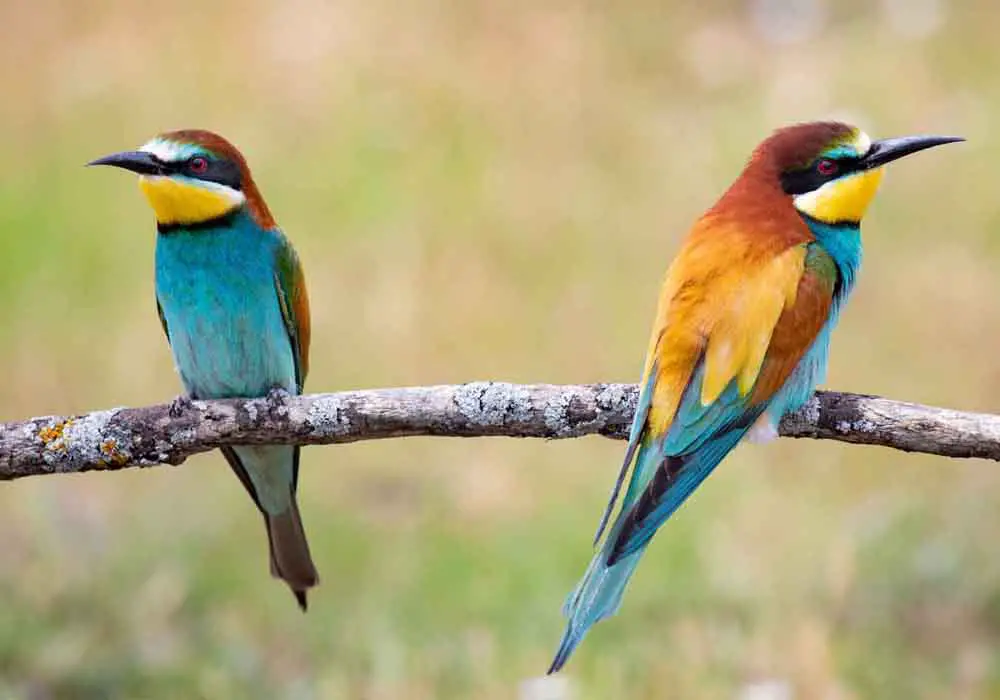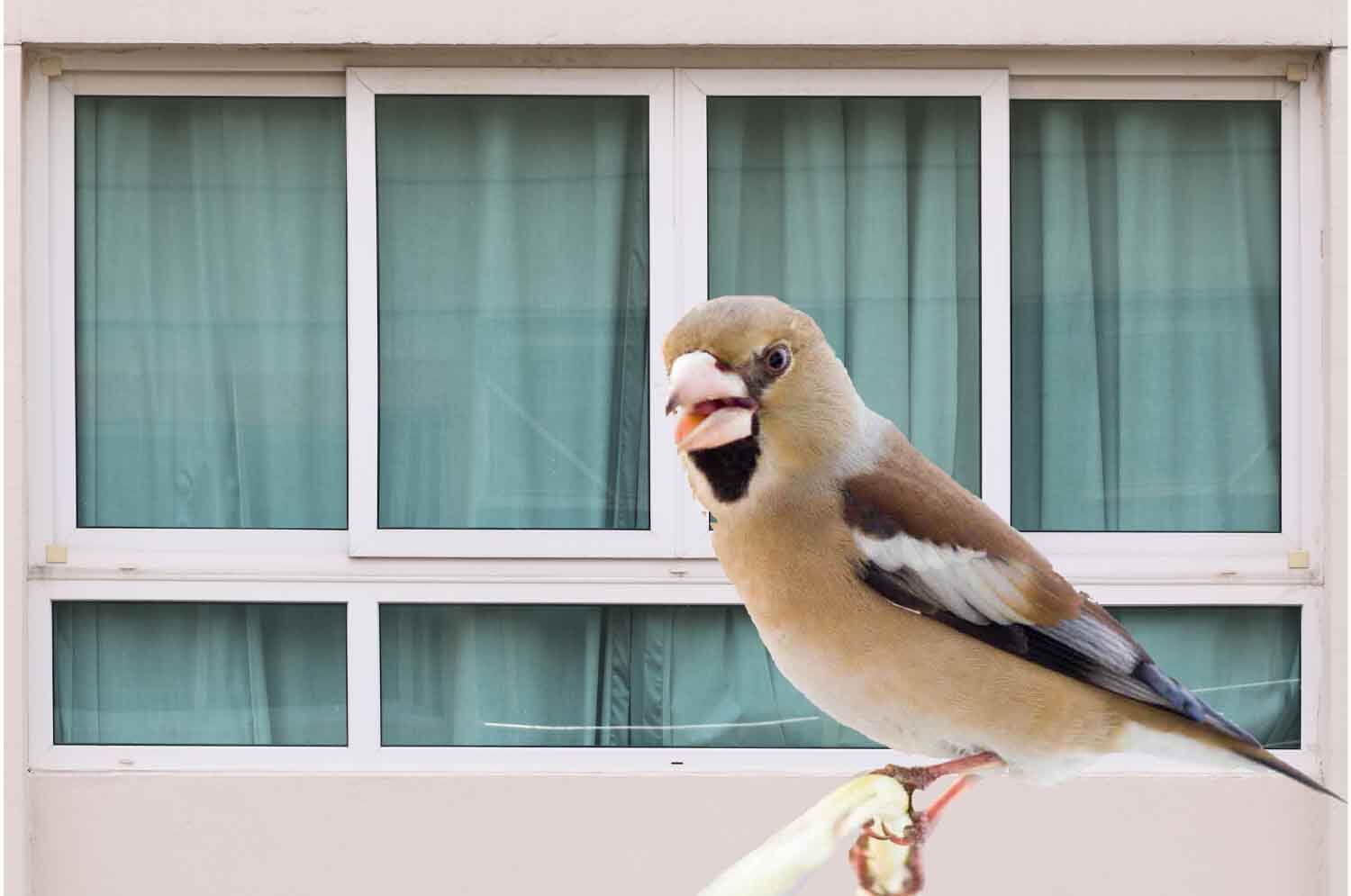Do Birds Understand Each Other?
Birds are noisy critters. Our feathered friends make louder sounds than one would expect from such small bodies. While their songs and calls sound like nonsense to our ears, birds express themselves via their vocalizations, yet, do birds understand each other?
Birds understand each other. Communication is vital for our winged companions; it allows them to carry out a lot of essential processes that keep them healthy and happy.
Birds understand the trills, calls, and songs that alert each other to danger, food, and amorousness. We'll never be able to speak their language, but let's look at some of the reasons why birds talk and how they vocalize their intentions.

What Do Birds Say to Each Other?
Birds create surprisingly complex sentences from their chirps and squawks.
Birds communicate with each other to exchange information about food location, potential dangers, romantic intentions, good nesting areas and their emotional states.
Calls Versus Songs
Birds use two primary methods of communication; songs and calls. The avian novice may be tempted to use the two terms interchangeably; however, each communication technique serves a distinct purpose.
Bird Calls
Calls are brief and use only a few notes. Both male and female birds use calls all year long to communicate information like their own location, where food is, and to alert others of threats and danger. Baby birds use calls to let their mamas know they're hungry.
Bird Songs
Songs are composed of many notes. Birds use these elaborate tunes to establish their territory and attract mates. Feathered lovers sometimes sing duets to strengthen their bond. While birds call all year long, our avian friends sing primarily in the spring.
Singing birds usually inhabit low-visibility areas, where sound is the only way to communicate with each other readily.
How Birds Speak to Each Other
Birds speak to each other through contact calls, alarm calls, flight calls, and begging calls. And bird words. Each of these communication techniques relays a specific message and cannot be used interchangeably.
Birds use a variety of vocal techniques to parlay their messages. Different sounds create several different calls, including:
Contact Calls
Contact calls are a bird's equivalent of checking in. The communications allow feathered friends to say, "I'm still here, just checking out this tree," while they forage. The calls are quick and quiet unless the companions lose track of each other. If a bird loses its friend, it’ll raise the volume of a contact call to reach its missing buddy.
Alarm Calls
Alarm calls are precisely what the name suggests; they alert other birds about danger. The calls can be urgent and immediate, or they can be an attempt to summon the troops against a common enemy. Whatever the intention, alarm calls indicate the presence of danger and the need for action.
Flight Calls
Flight calls are used while birds are in motion. The purpose is to keep the flock together as they move. These are often louder than contact calls, because they need to reach a broader audience, which can be often found farther away. Moreover, they need to be stable enough to withstand the constant motion.
Begging Calls
Baby birds use begging calls to get fed and distinguish themselves from their siblings. Nestlings want to grab their parent's attention, and the best way to do that is to release a loud and distinctive begging call. You’ll only hear these sounds in the beginning of a bird’s life cycle.
Bird Words
Bird words aren't the sibilant messes we rely on to communicate. Birds rely on sounds to deliver their messages; different tones and lengths carry different messages. Understanding what a bird is trying to say depends greatly on interpreting these noises.
There are too many varieties to break down, but some of the basics include:
- Coo: A coo is a low, soft sound birds use to express calm and relaxation. We most frequently associate coos with doves, but 51 different birds coo.
- Warble: A warble is a shaky sound birds let out. Not all birds warble; those who do are rather unoriginally referred to as "warblers." North America alone houses 53 species of warblers. do birds understand each other
- Trill: Trills are rapid bursts of high-pitched sound, repeated frequently. All birds trill, though at different frequencies and times of the day.
- Purr: Purring is mostly limited to domesticated birds. Don't expect Tweety's purr to sound the same as Sylvesters; while a cat's purr is a steady, gentle vibration, a bird's purr sounds closer to a growl.
- Purrs communicate either contentment or irritation. These feelings seem diametrically opposed to each other, and an avian's body language helps establish which emotion motivates the sound. Birds that purr include cockatiels, budgies, lovebirds, turtle doves, and macaws.
These two birds are doing a great job of communicating!
Lol
What Do Birds Talk About in the Morning?
Many of us have been awoken to the sound of chatty birds conversing outside our windows. How can they have so much to say before breakfast? Most morning calls are uttered by male birds defending their territory.
Birds talk about possessiveness in the morning. A loud morning call shows a male bird is strong and capable. It demonstrates that they are fit, healthy, and know where the good grub is. Male birds want the ladies to know they'll be good mates and make healthy chicks.
Besides attracting potential mates, a powerful, strong morning call helps deter rivals. It shows the caller is formidable, a force to be reckoned with
Morning calls can either be a pleasant experience or an annoying wake-up call. Either way, you'll want to mark your calendar for when to either set your alarm or soundproof your room, depending on your enthusiasm for early mornings.
Birds perform morning calls between March and July, peaking in May and June.
The earliest singers start an hour before sunrise. Blackbirds, thrushes, and robins usually begin the chorus with these pre-dawn tones. Next up are wrens and warblers, while great tits, blue tits, sparrows, and finches close the show when the sun rises.
Birds sing in the morning because it is quiet and dark. The darkness prevents predators from easily locating them and turning them into singing breakfast. Additionally, early morning quiet allows their songs to travel further by a great deal. In fact, early morning bird songs travel twenty times further than they would later in the day.

To be able to understand, birds need to communicate in the first place. So how do birds communicate? By talking of course!
To learn more about this, check out our fascinating How Do Birds Talk? article here.
Can Birds Understand Other Bird Species?
Each bird species has its own unique method of communication and set of calls. The cheeps and chirps sound similar to a human ear, so can one species of bird understand another bird species?
Birds can usually understand other bird species. The ability is learned and not innate. Birds primarily focus on alarm calls; one avian variety learns the alarm calls of different species so they can listen into warnings about predators and threats.
Birds also listen to other species' territory calls, both for defensive purposes and to combine forces. Territorial birds may use a contact call to ward off invasive avian species, while the friendlier flappers may try to mate into another flock and work with them to locate food.
The most nefarious of the bird ciphers are the cuckoos. Deadbeat cuckoo moms like to lay their eggs in other species' nests. The baby cuckoos learn the native begging cry quickly as a survival mechanism. If the hatchling accurately imitates the begging cry of the other chicks, the mother will believe they're one of their own and feed them.
Can Birds Understand Humans?
Birds cannot understand human language. Even birds like parrots who can mimic human speech can't actually understand it. However, birds can come to recognize the faces of familiar humans.
Domesticated birds, kept as pets, may learn to contextualize frequently repeated words when paired with their human's actions, but they never fully understand the meaning behind them.
What Is Bird Language Called?
Bird language has no formal name, though it has great symbolic and historical resonance. Many cultures have viewed the ability to understand a bird's language as a sort of divine intelligence.
Norse mythology, Greek mythology, middle eastern folklore, and Abrahamic religions hold bird languages in high regard and believe them to signify great intellect and power. do birds understand each other
Do Birds Understand Each Other?...Conclusion
Birds use elaborate vocalizations to communicate an array of necessary information. Language is a weapon and a defense for avians, a way to scare rivals away, and a way to warn friends about danger. Birds use their songs to attract mates and locate food. Listen in while they're speaking; who knows what you'll hear!
Back To The TOP Of This Do Birds Understand Each Other Page

About the Author...
Richard Worden, a dedicated bird lover for over 20 years, I love to share my in-depth knowledge and passion for birds. Read more About Me and my expertise in this field.
- We Know Birds HOME ›
- Bird Behavior Facts and Information ›
- Do Birds Understand Each Other?



